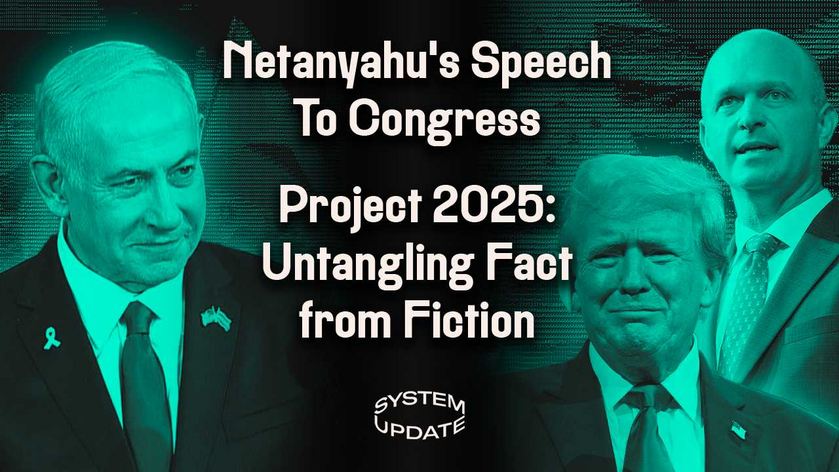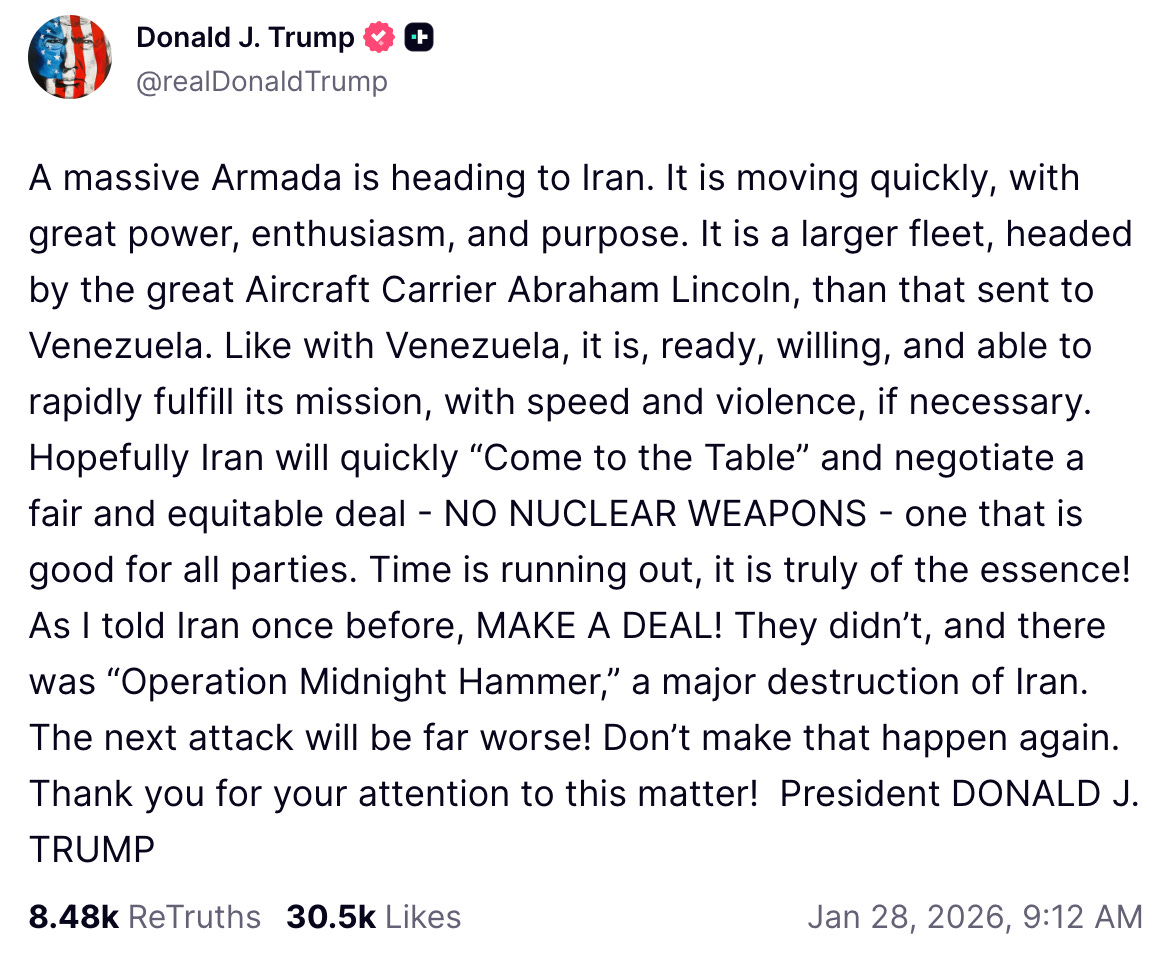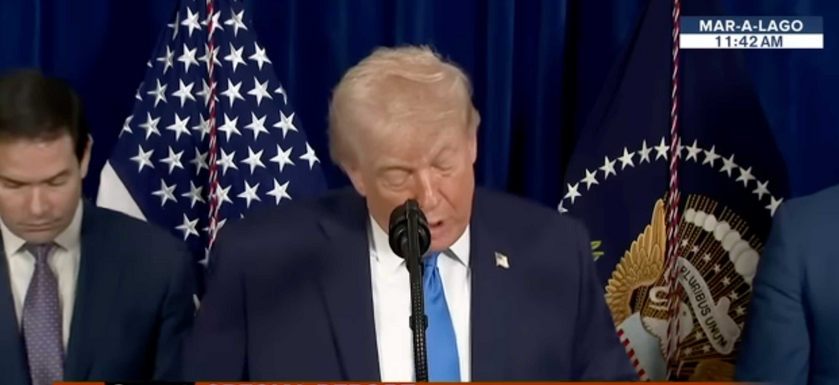Watch the full episode HERE
Interview with Kevin Roberts
And so that's something to perhaps ponder. And, with that, we wanted to move to an interview with the president of the Heritage Foundation, Kevin Roberts, who is somebody of interest, because the Heritage Foundation has been in the news quite a bit recently. The document that the think tank produced, called colloquially and referred to as “Project 2025,” has become a major point of contestation among the Republicans and Democrats as it relates to the 2024 campaign. My working sense is that there are many aspects of that document, which I actually took the liberty of reading. At least large portions of that have not really been discussed much in the so-called mainstream media. So, glad to be joined by, Kevin Roberts.
M. Tracey: Hello, sir.
Kevin Roberts: Michael. Thanks for having me. Looking forward to an intellectually honest conversation. Whatever someone's political beliefs are about “Project 2025.” So, thanks for having me.
M. Tracey: I appreciate that. So, if you listen to the chatter and much of the liberal-oriented media, obviously they've converted Project 2025 into what they think is going to be their gold mine of an attack line against Donald Trump and the Republicans writ large. And, I did something, I guess, a bit unusual by media standards, which is I read the document and there are portions of it that stood out to me as really guiding, getting no discussion whatsoever, at least as far as I've ascertained and those, for me, anyway, have to do with, national security and foreign policy. So, I want to discuss a few of those items with you, if you don't mind.
So, obviously, some recommendations are made in terms of how to reorganize the bureaucracy, the federal government, including the intelligence services and one prescription that is made is that section 702 of FISA, the Surveillance Act, ought to be renewed and reauthorized and that's been fairly controversial, including among the right, because, you know, the Fourth Amendment requires a warrant, and this authority is seen as authorizing warrantless surveillance and only barely passed the House in April, in terms of renewal. I think, actually, Speaker Johnson cast the tie-breaking vote in favor of that reauthorization of FISA. So, the section of Project 2025 that I'm referring to here, says that section 702 should be understood as a:
And so, it says that these authorizations need to be properly maintained and accountable, but that they should be retained nonetheless. So, what is your sense of what Project 2025 proposes for that particular authority, FISA? It's been controversial throughout the Trump administration. Trump has criticized certain aspects of it as having been abused. But the fundamental authority the document does propose be retained.
Kevin Roberts: Yes. Thanks so much for this conversation. We need to have more discourse like this in the United States, regardless of someone's political beliefs. So, I'm really grateful to answer the question about the policy detail. And, Michael, I'll make two points. One, from the standpoint of Project 2025, what you've read there is what's in the mandate for leadership book “The Conservative Promise,” this conservative policy manual, if you will. And keep in mind, we wrote that two years ago, so well before the most recent vote on the issue. The second point that I'll make is we do believe that the underlying authority of Section 702 should continue to exist, but especially those of us at the Heritage Foundation, which has facilitated this project, believe that there need to be very stringent serious amendments added to that. And so, during the last legislative, In the last legislative fight. Heritage. Of course, just one part of Project 2025, was vocal about some of these amendments being added to the bill so that we could better protect innocent Americans. All of that to say that this has been extended into what would be the next presidential term, and either for Mr. Trump or it looks like, you know, Ms. Harris, the nominee for the left. And I think at that point, we'll have the conversation about making those amendments again so that we can better protect the Fourth Amendment.
M. Tracey: Because also on the intelligence community, which again, raised a bit of a paradox for me because I've seen a lot of like people who on the right online who are actually in favor of Project 2025, anticipating that what's so great about it is that it will fundamentally overhaul the intelligence services and maybe combat the deep state, which has become a main theme among, you know, among right-wing discourse. And also Donald Trump obviously rails against it because he feels understandably aggrieved by elements of the National Security State that use unprecedented tactics to undermine him, whether it was through the Russia investigation, the Mueller special counsel investigation, etc., in his 2016 campaign. And then also in the early part of his first term, I want to just read a quote here. Here's what Project 2025 prescribes for the intelligence community.
That seems like the purpose of these bureaucratic reorganizations that are being proposed is to better entrench American primacy, right?, to better expand American hegemony, and to combat alleged adversaries, which is very much in keeping with the standard mission of the intelligence services. Whatever tweaks you might want to make around the margins of how it's bureaucratically organized, would that be a fair summation?


















